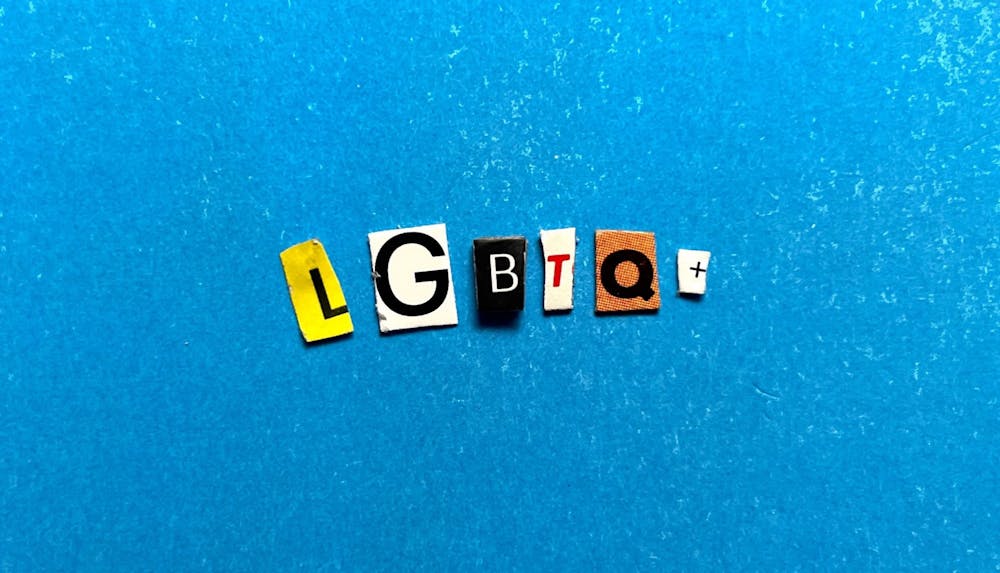Language is ever-changing, and this is especially true in the LGBTQ+ community. Words, phrases and acronyms have been evolving for decades in response to the call for more inclusive language and taking back a once persecuted identity. In the past decade or so, there’s been a noticeable addition of the word "queer" as an identifier for many in the LGBTQ+ community.
The addition of the “Q” (queer) has different implications than the addition of the “B” (bisexual) or the “T” (transgender) because, according to sociolinguistic researcher Remy Attig, who holds a doctorate in Spanish, the word "queer" means two things: an umbrella term for sexuality and an anti-establishment group.
According to Attig, “queer” as an umbrella term doesn’t necessarily resonate with everyone, but using the term as a more general idea or belief system is more on par with the reclamation of once-offensive language.
“‘Queer’ as an anti-establishment group … says, ‘Equality doesn’t come from society recognizing us on their terms; it comes from us taking that which is inherently ours by virtue of being human beings,’” Attig said.
Steven Petrow, a gay columnist for the Washington Post who often writes on LGBTQ+ issues, affirmed that many in the LGBTQ+ community don’t identify as queer.
“I don’t use queer to define myself,” Petrow told the Post in an article about the LGTBQ+ acronym. “A lot of people who are of my generation remember what a horrible hateful slur that was.”
The word "queer" originated in the 16th century meaning "strange," but around the turn of the 20th century it became a homophobic slur that was used to denigrate individuals outside of the heteronormative blueprint society had for people.
It wasn’t until the 1969 Stonewall Riots that members of the LGBTQ+ community started taking back the term.
Attig, who identifies as queer, said his interest in linguistics began in looking at the way identity is navigated and understood by people who don’t fit the standard heteronormative, male-dominant society.
“When you have intersecting identities that aren’t part of the group in power … it becomes a bit of an interesting way of figuring out how to communicate who you are,” Attig said.
According to Attig, community-specific queer language, such as words like gay, lesbian and more, being used as opposed to standard, heteronormative language is well-documented, going at least as far back as the 1950s.
“In some ways, early on (the language) was a way of connecting with people when being queer was illegal,” Attig said.
Get content from The Daily Lobo delivered to your inbox
Language fostering inclusivity is becoming more commonplace by the day. Mainstream-accepted phrases and words that were once used to identify a person or group of people have been changing to give everyone a place in society.
According to the Safe Zone Project, which describes itself as an online resource for “powerful, effective LGBTQ+ awareness,” binary language restricts accessibility for people of all genders. The project says that the phrase “ladies and gentlemen” should be replaced by “everyone,” “folks” or “honored guests.”
The Safe Zone Project also advises changing professional titles with traditionally male suffixes because a person of any gender can do those jobs. For example, “fireman” and “mailman” can easily be changed to “firefighter” and “mail clerk,” respectively.
Changes in vocabulary also led to changes in acronyms that identify organizations and communities.
GLAAD, an organization founded to advocate for the LGBTQ+ community, was originally an acronym for the Gay & Lesbian Alliance Against Defamation. In 2013, the organization announced the shift to simply the GLAAD initials on their own, without the original full name behind it. The goal was to include a wider scope of people than just those who identify as gay and lesbian.
“It is a natural progression that reflects the work GLAAD's staff is already leading," actor, LGBTQ+ activist and GLAAD staff member Wilson Cruz told MSNBC.
The acronym of LGBTQ+ in itself has changed as well. The more dated form of the acronym is LGBT, but in 2016, GLAAD formally added "Q" to make the acronym more inclusive, which was gradually added on by other groups and organizations as well. Although GLAAD recognizes that queer was once a pejorative term and there are individuals in the community who don’t identify as queer, GLAAD said it has been “reclaimed by some LGBT people to describe themselves.”
Emma Trevino is the culture editor at the Daily Lobo. She can be contacted at culture@dailylobo.com or on Twitter @itsemmatr






